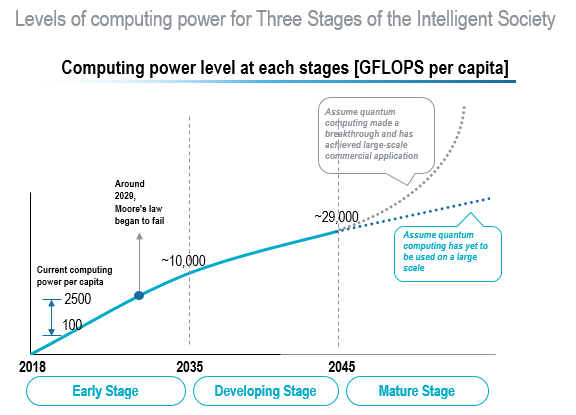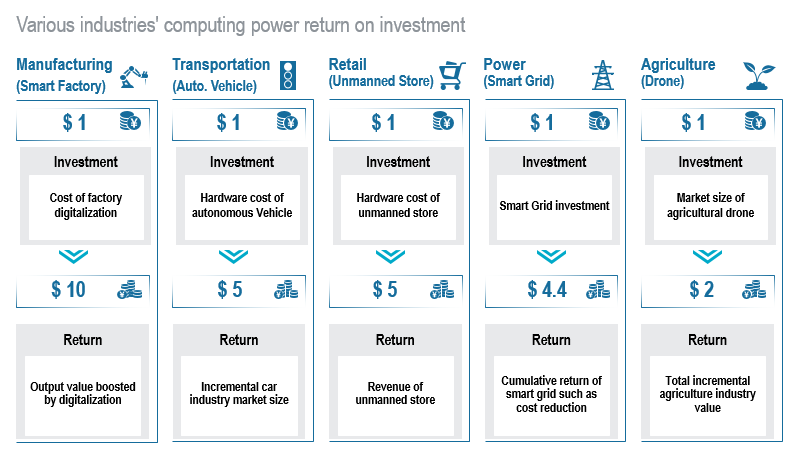This site uses cookies. By continuing to browse the site you are agreeing to our use of cookies. Read our privacy policy
Ubiquitous Computing Power: the Cornerstone of an Intelligent Society
The technologies behind computing and connectivity are progressing by leaps and bounds every day, and they will soon pave the way for a world where all things sense, all things are connected, and all things are intelligent. Ubiquitous computing power will be the cornerstone of this future world. To accelerate computing industry development, promoting a diverse computing ecosystem has become industry consensus.
First, ubiquitous computing power is the cornerstone of an intelligent society. We all know that per capita GDP is the primary measure of a country's economic productivity. Similarly, we use per capita computing power to mark the different stages of development in smart countries. Currently, per capita computing power in major countries and regions ranges from 100 to 2,500 GFLOPS, still in the very early stages of intelligent society, they will enter developing stage only when their per capita computing power surpasses 10,000 GFLOPS.

Second, we need to build a diversified computing power ecosystem to drive the computing industry forward. In the intelligent world, we will see more diverse application scenarios and data types than ever before, which calls for a much more diversified computing power architecture.
If we hope to succeed in building a prosperous and diversified computing power ecosystem, we will need new innovation in the underlying architecture and greater collaboration between customers, industry partners, and developers. This is the only way to build out the ecosystem more rapidly and provide new momentum for the computing industry as a whole.
Third, investing in computing power will promote innovation, boost economic growth, and improve people's lives, raising the overall competitiveness of many nations. Analysis across a number of countries has revealed that investments in computing power boost economic growth in two ways: by directly promoting growth in the local ICT industry, and by contributing to innovation in many others, including manufacturing, transportation, energy, retail, and agriculture.


